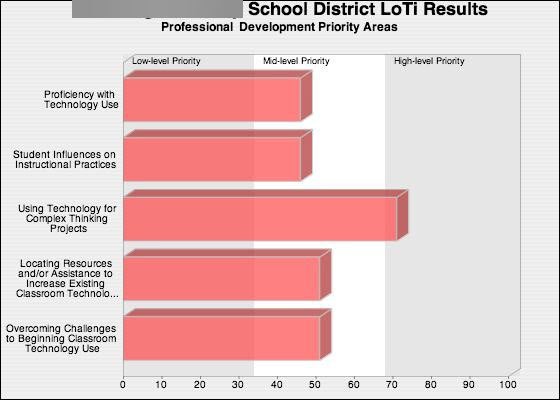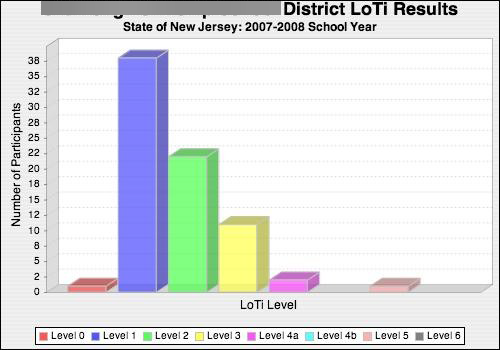What is Educational Leadership?
When I'm talking about Educational Leadership here, I'm referring to those with power and control within the structure of an educational setting. Not that teachers can show true leadership; the problem is that they are often expected to abide by the directives of a principal or superintendent within school districts.
My experience has been that Educational Leadership can determine how successful a school or district can be. If we further break this down to asking the question, "What does success mean?" My definition of success could differ from others, and you can agree or disagree with my definition of success. Success, to me, is based on how the experience of students and teachers is considered. If your definition of success is how well students do on standardized testing, then I'd have to say we don't see things the same way.
Back over twenty years ago (2003), when I was applying to the University of Delaware Doctoral Program in Educational Leadership, part of the admission process was taking an "open book" exam. I was asked the following questions: 1) Describe a problem in your area of interest that typifies the kind of issue that you would like to pursue as a leadership professional. (2) What are some questions that you would address in order to formulate your approach to reducing or solving this problem? (3) What kinds of information would you need to gather in order to clarify or shed light on these questions? (4) How could you get the kind of information you would need? For example, what are some tools or strategies for inquiry that you would use to gather this information? (5) How would you go about planning or figuring out your proposed solution? (6) Based on your reading of the research literature, discuss two or three specific examples of significant approaches taken by other leaders who have approached problems in this area. What would your study do to refute, confirm, or add to best practices in this domain?
At the time when I submitted my doctoral application, I stated, " One of the major concerns regarding our educational policies today is the trend towards a "back to basic" approach to education. Where test scores are the key measurement of success. In preparing our students, when looking at mastery learning, incorporating numerous instructive materials, is it just a method of memorizing a specific set of materials rather than truly learning? And in so mastering of concepts, are we truly promoting learning? In our methodology, we have trained, not educated, students. Students become disseminators of sound bites of information without any knowledge beyond the simple yes or no answer or choice between A, B, C, or D. In being so focused on standardized testing to measure what students know, we have turned students from learners into products."
I'm still concerned with our approach to education back then and even today. In discussing the idea of educational leadership, one of the critical points is whether, as an educational leader, you are more concerned with how students score on standardized testing than actually educating students.
Let me stop here and say that in the following discussion, I will give you an account of my experience. Your experience may be different, or it may be similar. Either way, hopefully, you'll have the opportunity to really think about educational leadership. The important thing to remember while reflecting on your experience is to separate what leaders say from what they do. It is very easy to say you don't believe in teaching to the test. However, if you shift your curriculum around to focus more on subject areas that are part of state testing and devote less time to untested areas, you really need to be honest with yourself. For example, if your state focuses on math and language arts and less on science, social studies, and the arts, and you shift your curriculum to devote more time towards testing areas, who are you kidding?
I realize there is a lot of pressure on school districts to improve test scores, but this is where some educational leaders in districts lack the courage to take a stance against this critical issue. When is enough enough? Don't talk about how you're not focused on teaching to the test when all indications based on action show the complete opposite.
I know it's difficult to stick your neck out, knowing that speaking out could be a job security issue. As a teacher with tenure, I knew it gave me a sense of security when it came to speaking out. What always frustrated me was how administrators and some teachers would all fall in line with the same script regarding how they weren't focused on teaching to the test. The analogy I always used was based on the movie. The Matrix. In the movie, Neo, the main character, is offered a choice between the red or blue pill. The red pill would show life as it really was, while the blue pill would continue to present life in this imaginary, unrealistic world. Too often, I experienced school leaders would willingly take the blue pill. Some teachers would also join in with taking the blue pill. In some cases, teachers would think that doing so would give them an inside track with administrators. By doing so, I would question their leadership skills.
Another question I raise as a measurement of educational leadership relates to how well a person works with teachers. Now, this can be broken down into several areas. First up is the question of whether there is a sense of trust and reliance on teachers to be a part of a team effort to provide a positive and creative learning environment. What do I mean by this? One question to ask of your educational leaders is, when it comes to any aspect of the learning environment, do they take credit for any favorable situation and look to blame others for any problems that may arise?
So, let me give you an example to clarify this a bit more. When I started working in a district, the state offered sizeable grants to school districts regarding technology. At the time, I was the computer teacher in a K-5 school. I began working with the school's principal to create a grant proposal to apply for a grant. Since I had experience doing web quests, we decided to focus our grant proposal on teaching our teachers how to create a WebQuest. At the time, I was teaching a full load of classes and working on this grant. A part of the grant was that we had to collaborate with a non-public school. We reached an agreement with a local Catholic school, and their part of the grant would allow them to wire their school so they had a working network and join in on training regarding WebQuests.
At one stage of writing the grant proposal, the principal decided to take a few days at home to work on the grant. By being home, she could avoid any interruptions. Meanwhile, I would continue to teach all my classes and continue to work on the grant. Now, it just so happened that the days she took off was at the same time she was getting her kitchen remodeled. When we got together the following week to review the grant, she had copied another school district's grant proposal, which had nothing to do with WebQuests. Fortunately, I continued focusing on WebQuests, so we didn't lose time. We were happy to hear from the state that our grant proposal was approved, and we received a grant for $98,000. The next step was to go to the school board, where they would approve the acceptance of the grant. I was asked to attend in case there were any questions. During the meeting, I gave an overview of WebQuests. After the board approved the grant, they thanked her for all the work she had done. As I sat in the audience, she accepted all the praise, and not once did she mention that this was a joint effort.
As the grant went into effect, I spent a full weekend at the Catholic school running ethernet cable throughout the school. I also began instructing teachers on creating WebQuests and continued teaching all my classes. At one meeting to go over the status and progress of the grant, I felt a bit stretched in numerous directions; the focus of the meeting became why the maintenance staff hadn't put up her parking sign in the parking lot. As I think about this now, I have to laugh. Why? I started to watch Abbott Elementary, and as I write this, I can't help but think of the principal on the show.
As an educational leader, it is vital that you acknowledge others. As mentioned previously, don't shine the light on yourself; instead, shine the light on all of those who participated. I've heard too many stories from other educators about how familiar this sounds and feels. The question is, is your ego so fragile that you need constant acknowledgment and praise? If so, you will wind up alone, constantly seeking recognition. This is not a good place to be.
Unfortunately, I've seen this pattern over and over. The question becomes, how do you break this pattern? This is a very tough pattern to break out of. Think about it. There is a need to hire a new administrator. The school board is going to have to approve the hiring. What type of person are they going to look for? If this administrator, says a principal, is to be hired, what will the superintendent look for in that person? If the school district is relatively conservative, what type of administrator will they look for?
A district is looking to hire a new superintendent. One of the candidates has requested his wife come in to set up his presentation to the board because of his lack of knowledge in doing so. What do you do? Hire him? To me, this would be a warning side right away. Have your wife set up your presentation? Really? For me, a red flag would go up, and I would wonder whether this person was qualified for the position. What happens is that this person is hired as the superintendent. Again, this situation is where an educational leader is more concerned with taking credit for the good things and blaming others when things go wrong. Another red pill/blue pill situation. For example, they attend a conference where they see a presentation on iPods and podcasts. He decides he wants to go to the school district's educational foundation and apply for a grant to provide himself and a small group of teachers an iPod and training on using it to listen to educational podcasts. He isn't really clear on the whole thing, so I'm asked to go to the foundation and present the concept. The educational foundation approved the grant, and he got himself a free iPod. I was the tech coordinator then, and I completed training on using the iPods for podcasts, which he never attends.
Now, this is the same man who brings a new principal aboard at the same time he is hired who worked under him to be his right-hand man. Again, the question becomes, what kind of educational leader will he be? At the time, I had begun to work on my doctoral degree at the University of Delaware. Having been in the district for several years, I knew how ineffective many in-service days were, particularly regarding technology. I completed getting certified as a LoTi mentor between attending Delaware and being the tech coordinator. Before the beginning of a new school year, I meet with all of the administrators to present to them a LoTi survey. This survey would indicate a teacher's technology experience, their approach to teaching (teacher-centered or student-centered), and how well they integrated technology into their curriculum. From the results, we could better structure professional development and in-service days. Rather than throwing everyone together in one session, where it was sink or swim, we could structure various training based on the level of needs. My last statement to them was don't have teachers take this survey if you aren't going to use the results to plan in-service days better. What happened? A part of the survey was a report generated with nice graphs and detailed information on the results.
What did the district do with these results? Use to plan in-service days better? Assist with professional development? Use results to define areas of need better. Sorry to say, none of these. The administrator in charge of pupil services and professional development was so anxious to get their hands on this report so they could submit it to the school board. After the report was submitted, the idea of using this tool to plan professional development better ended.
Another interesting area of concern is related to evaluation. I was completing a course, Principles of Educational Evaluation, and a part of the course was to look at how programs are evaluated in your school district. One program used in our district was Read180. I went to the head of pupil services to ask about how this program was evaluated regarding its effectiveness. When asked, the only response I got to assess its effectiveness was students' report card grades. The response I got from teachers regarding the program was not very positive. They felt the program was forced upon them without any feedback from them. Is this true educational leadership?
Now, back to the superintendent, teachers felt no sense of leadership from him. They would laugh about how when he came in to evaluate their classroom, he would start to fall asleep. They felt all of his actions were self-serving. The principal he brought along could not see beyond himself. All conversations tended to steer towards himself. He was a nice guy but really lacked leadership skills. School board members loved them in part because they hired them, and in part, they would follow whatever they commanded. Neither dared to take a stance regarding bulldozer parents. They would do whatever they could to keep the heat off them. Is this educational leadership?
And the results of all this? There was a continual decline in morale throughout the school district. In the other school within the district, a principal practiced the idea of "do as I say, not as I do." A person standing in the middle of the main office and bad-mouthing people without hesitation. Who would rule with an iron fist. This worked great for the middle school principal because many parents were happy when their children graduated from elementary school and moved on to middle school.
When a new superintendent was hired, things did not improve. There was no rejuvenation in morale. Things only got worse. Teacher-aides were fired to make room for "cost" reasons, while a for-profit agency that provided no benefits to its employees was used to provide teachers-aides. There was no consistency in the classrooms. Students had bonded with the teacher-aides and now lost their support system. The superintendent presented in front of the board while requesting this change that the company that would provide teacher-aides was the company that was so successful in providing substitute teachers. Every teacher who had a teacher in their classroom knew this was a lie. I couldn't tell you how often the teacher's aide was pulled from my classroom due to insufficient substitute teachers. Morale went down even more.
Why do I tell you all of this? It isn't just to vent. It's really to show how the lack of true educational leadership can negatively impact all aspects of education. Things haven't improved in talking with teachers since I left. It has become a survival of the fittest. They are troupers. Fortunately, they can close their doors and go on teaching and doing a great job. But you have to wonder, do I take the red pill or the blue pill?
Educational leadership needs people who work well with others. They need to be a true team player. They need to put their egos aside. Give credit where credit is due. They need to put others in front of themselves. They need to be able to really listen to what teachers are saying. They need to know how to build positive relationships out of respect and a shared sense of good, not out of fear. They need to have the courage to stand up to those who try to impede progress, whether it is the school board or community members.
The real difficulty is finding these types, and if you do, how do you get them into educational leadership roles? If a school district board of education is made of authoritarian members who have hired their type of superintendent (top-down leadership). When it comes time for hiring a new administrator, what type of person will they look for? If we can break out of this cycle and hire true educational leaders, the short and long-term benefits will filter down to teachers, students, the school, and the community.
When you subscribe to the blog, we will send you an e-mail when there are new updates on the site so you wouldn't miss them.




Comments